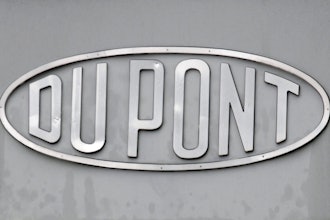SALEM, Ore. (AP) — Oregon's stalled effort to reduce greenhouse gases from cars and trucks could get new life soon, as the state pushes for a new pollution-reporting mandate for fuel providers and the Legislature prepares to take a fresh look at the program.
The first test comes Friday, when a state environmental panel will decide whether to force oil producers to report the amount of carbon emissions associated with their fuels.
A bigger fight will come next year, when environmental groups and others will ask the Legislature to extend the life of the Oregon Clean Fuels Program beyond its current expiration in 2015. The move would allow the state to go beyond a reporting requirement and begin forcing fuel providers to reduce the amount of greenhouse-gas emissions.
"We're seeing the impacts of climate change now," said Jana Gastellum, climate protection program manager at the Oregon Environmental Council. "We have an economic need to spur investment in our state, and this program is a great opportunity to address both issues at once."
Oil companies, truckers, farmers and other large-volume fuel users say the state is moving way too fast and risks raising fuel costs significantly. They're warning legislators that eliminating the program's expiration date, or "sunset," would remove the Legislature's power to influence the process.
"They're just saying, 'Trust us, so we can get rid of the sunset and go do it without any legislative oversight,'" said Brian Doherty, a lobbyist for the Western States Petroleum Association, a coalition of oil companies.
Oregon was one of the first states to adopt a low-carbon fuel standard in 2009, requiring fuel producers to reduce the carbon content of their fuel by 10 percent from their 2010 levels. It was one of the top environmental achievements for former Gov. Ted Kulongoski, but it has yet to be implemented.
Now, the Oregon Department of Environmental Quality has come up with a two-phase approach beginning with Friday's meeting of the Environmental Quality Commission. If the commission approves, fuel companies would have to track and report pollution associated with their fuel based on a carbon intensity score. The metric measures pollution from a fuel's entire life cycle, including the electricity used to produce it and the fuel used to transport it to Oregon.
Then, if the Legislature reauthorizes the clean-fuels program next year, the state would come up with a new set of rules to force fuel suppliers to begin reducing the amount of pollution.
Fuel companies could comply by blending in more renewable fuels or by substituting alternative fuels with lower carbon intensity. Companies producing low-carbon fuels would be able to sell pollution credits to higher-polluting fuel producers.
Proponents hope the requirements will spur new clean-fuel innovations and speed the adoption of alternative-fuel technologies.
That's a business opportunity for Blue Star Gas, a propane supplier that operates in northern California and Oregon and converts fleet vehicles to run on propane autogas. Full adoption of the low-carbon fuel standard would create an incentive for companies to convert fleets to run on propane, generating pollution credits that could be sold to high-polluting fuel suppliers, said Darren Engle, the company's marketing director.
Electric utilities or owners of electric-vehicle charging stations also could generate credits based on electricity used to power electric vehicles.
Critics have a number of concerns, chief among them that gas and diesel prices would rise significantly — a claim proponents dispute.
They also say it would be impossible to meet the 10 percent reduction targets based on the fuels and technologies currently available. Under Oregon law, 10 percent of retail gasoline already must be ethanol, and 5 percent of diesel must be biodiesel.
"We're an industry that's very heavily regulated," said Debra Dunn, president of Oregon Trucking Associations, and industry group. "Our profit margins are very narrow. So any added cost really has a much greater impact on our bottom line than most people realize."
Critics also say Oregon should wait for courts to sort out whether a similar law in California is unconstitutional. A federal judge ruled earlier this year that the California law illegally discriminates against out-of-state fuel producers. The case is now pending before the 9th U.S. Circuit Court of Appeals.





















